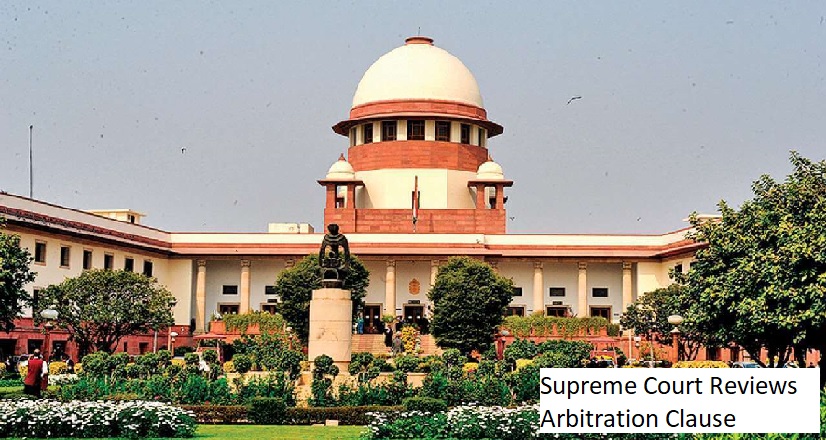


In a landmark legal judgment, the Supreme Court of India issued a significant ruling with far-reaching implications for arbitration agreements. The Court emphasized that a clause within an arbitration agreement that does not align with the principles enshrined in the Constitution of India cannot be enforced. This ruling underscores the constitutional importance of arbitration agreements and sets a precedent for their scrutiny in light of the fundamental rights guaranteed by the Constitution.
The crux of the Supreme Court's decision lies in its assertion that arbitration clauses must conform to the constitutional framework of India. In other words, these clauses cannot infringe upon the rights and principles enshrined in the Constitution. One such pivotal constitutional provision that the Court referred to is Article 14, which guarantees the right to equality. This article ensures that all individuals are treated equally under the law and protects them from arbitrary or discriminatory actions.
The Court's pronouncement that it can examine arbitration clauses for manifest arbitrariness and violations of Article 14 is a significant departure from traditional arbitration jurisprudence. Historically, arbitration has been regarded as an autonomous and private mechanism for resolving disputes outside the formal court system. However, this decision implies that the Court can intervene when arbitration clauses are found to be arbitrary or violative of the constitutional right to equality.
A bench comprising eminent judges, led by the Chief Justice, rendered this groundbreaking decision. Their collective wisdom has placed the sanctity of the Constitution at the forefront of arbitration proceedings. By doing so, the Court has recognized the broader significance of arbitration agreements in the legal landscape.
The implications of this ruling are multifaceted. It not only provides a mechanism for individuals and parties to challenge arbitration agreements that violate their constitutional rights but also acts as a deterrent against the inclusion of such clauses in the first place. In essence, this decision raises the bar for the enforceability of arbitration agreements by placing constitutional scrutiny at the core of the assessment.
Arbitration, as an alternative dispute resolution mechanism, offers numerous advantages, such as efficiency and confidentiality. However, these advantages should not come at the cost of fundamental constitutional principles. This ruling is a testament to the judiciary's commitment to safeguarding the constitutional rights of every citizen.
In practice, this judgment empowers individuals and entities to challenge arbitration agreements on the grounds of arbitrariness and violation of Article 14. This is especially relevant in cases where one party feels disadvantaged by the terms of the arbitration agreement. It provides a legal avenue for such parties to seek remedies within the framework of the Constitution.
In conclusion, the Supreme Court's recent ruling reaffirms the constitutional supremacy in the realm of arbitration. It underscores the importance of aligning arbitration clauses with constitutional principles, particularly Article 14. This decision marks a significant step towards ensuring that arbitration agreements are not used as tools to infringe upon the fundamental rights of individuals. It reinforces the principle that the Constitution is the bedrock upon which all legal agreements and mechanisms must be built and tested.
TAGS: Supreme Court arbitration agreement Constitution Article 14 enforceability